I woke up at 4.10 today, before my 5 am alarm rang. I guess my internal clock was a bit off after around 20 days waking up at 3 am for sahur, the wee-hours Ramadan meal.
My son and husband were still fast asleep in our dark bedroom. I could hear them snore, along the takbir from mosques nearby our home.
It is Lebaran, I thought. Eid al-Fitr, the celebration day after a month of fasting. Almost every Lebaran I wake up at 5 am in for the morning prayer, wake Yoga and R up, rush for shower and quick breakfast, then drive or walk to the nearest Eid prayer location. The Eid prayer usually starts at 6.30 in Bandung, my parents’ hometown. Then, a marathon of visiting at least four relatives’ houses in the first day, and two houses for the second.
Subuh adhan was still 20 minutes away, and there was no need to rush this time. I woke up in Depok, not Bandung; no Eid prayer to attend anyway, thanks to COVID-19. I sighed, then turned my cellphone on and watched another episode of Mr. Sunshine on Netflix.
After ablution and Subuh prayer I returned my attention to my cellphone again for the rest of the hour-long episode. Morning had broken when I got out of the room and took a bunch of packed food from my fridge. My in-laws do not celebrate Eid but they always get food hampers from kind neighbours, and I’m fortunate to have that food sent to my home. I put three ketupats into the rice cooker to warm them up for Eid breakfast.
Another ablution, and then my first lone Eid prayer ever. Seven takbir for the first rakaat, and then five for the second one. I could not really concentrate. I thought about my parents, whom I hadn’t seen for more than three months (I used to meet them every month); whether my son would start his first kindergarten year in July as planned; when we would ever travel again; whether we would be able to hug loved our ones ever again; why couldn’t I be just grateful that I have the privilege of staying at home; all the uncertainties the pandemic brought along..
I cried after the prayer, overwhelmed with all that thought. I read Gus Nadir’s Eid sermon on whether we still had enough time, then cried again.
I went out of the room to find Yoga in the kitchen, warming up the rest of food from his parents. They were typical Eid dishes: opor, rendang, sambal goreng ati and sayur waluh. It smelled like Eid. I smiled.
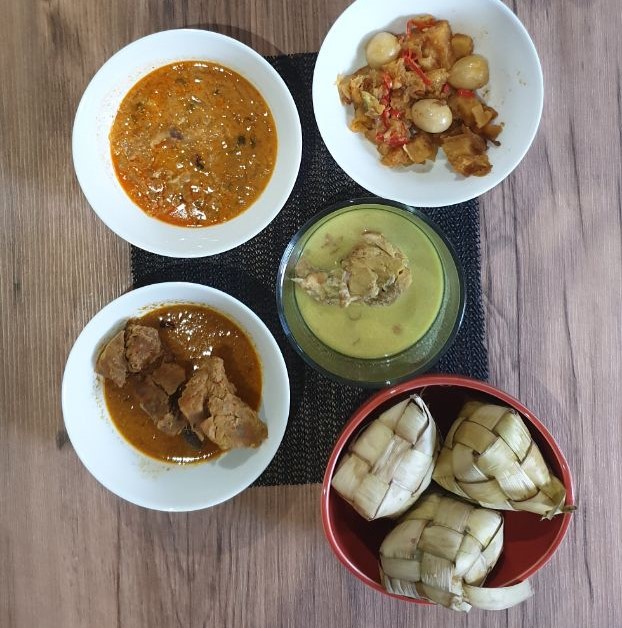
After Eid breakfast we took our first Eid-in-Depok pictures. I think they were quite cute.
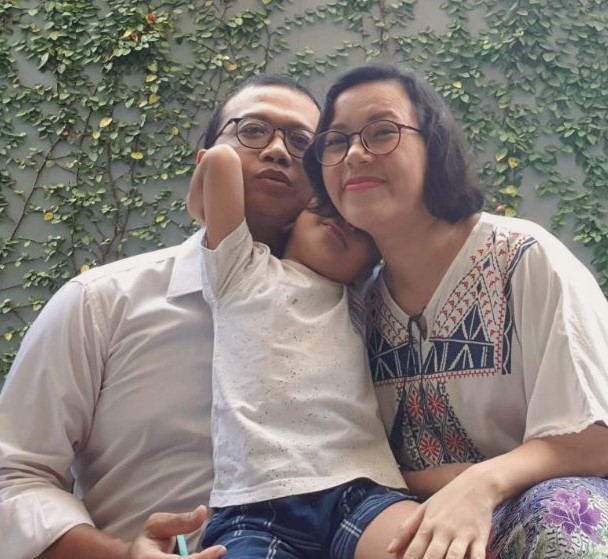
Then, three short sessions of Zoom. The first one was with my parents. My mom’s sister’s family joined them for Eid breakfast and video call. I could see how my parents miss their grandson so much. The second Zoom was with my dad’s extended family. It was chaotic but ended after 20 minutes, much shorter than the usual 3+ hours when done offline. The last one was actually the longest, with my best friends from olde Tempo days: Vennie, Fame and Nila, featuring noisy kids.
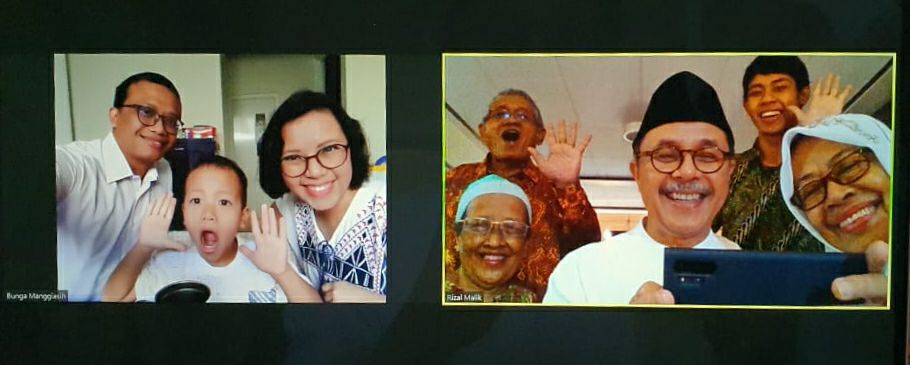
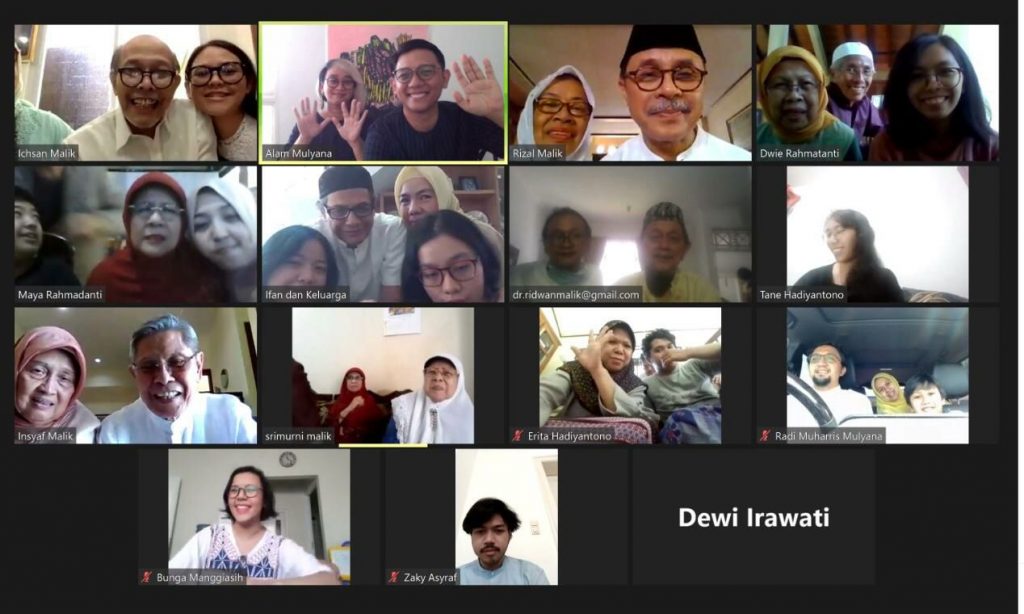
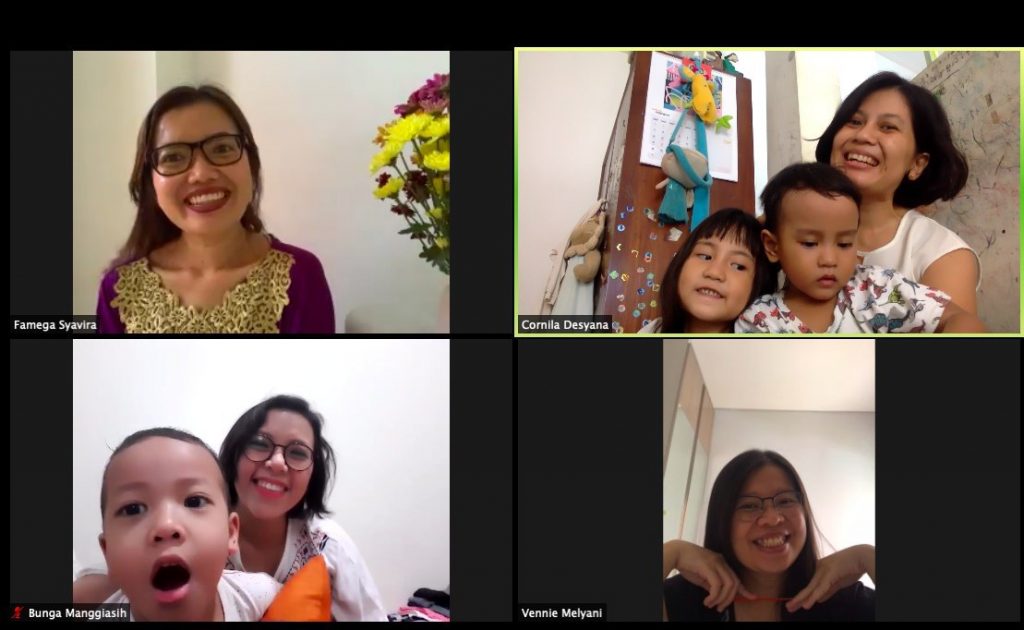
The day was sunny, hot and humid. In between Zoom calls and lunch we lied down in our sitting room, enjoying the breeze from outside plus electric fan. I closed my eyes and pretended we were relaxing on the beach.
On the second day of Eid, we went to my uncle’s house, around 30 minutes away by car. I was actually antsy because my uncle, aunt and cousin had their first Eid day in Bandung, met a lot of family then drove to Depok in the evening.
‘No hugs and kisses this time,’ I said to my son. ‘Just high-fives.’
‘Is it because of the corona?’
‘Yes. Let’s be on the safe side,’ although I knew it would be much safer to wear masks, I felt that I could not do it because I wanted to keep a remnant of the old normal: maskless conversations.
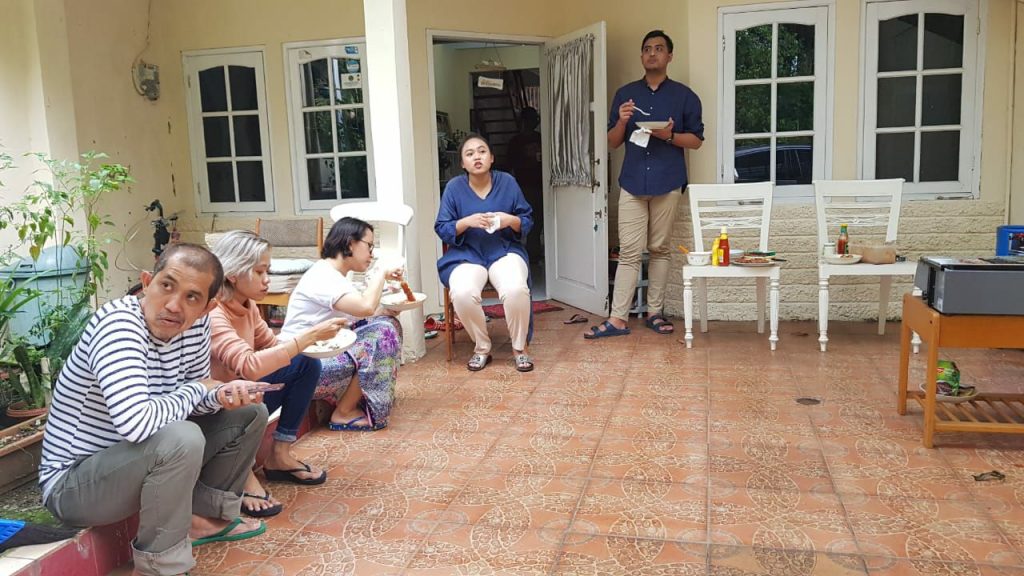
The visit was actually great. We videocalled my parents, talked a lot, ate and drank a lot more. My cousin Icha and her partner Dika even grilled us some steak and sausage. It felt like a smaller and better version of Eid gathering.
I also managed to join Inspirit’s Vibrant facilitators Eid meeting over Zoom on my way back home.
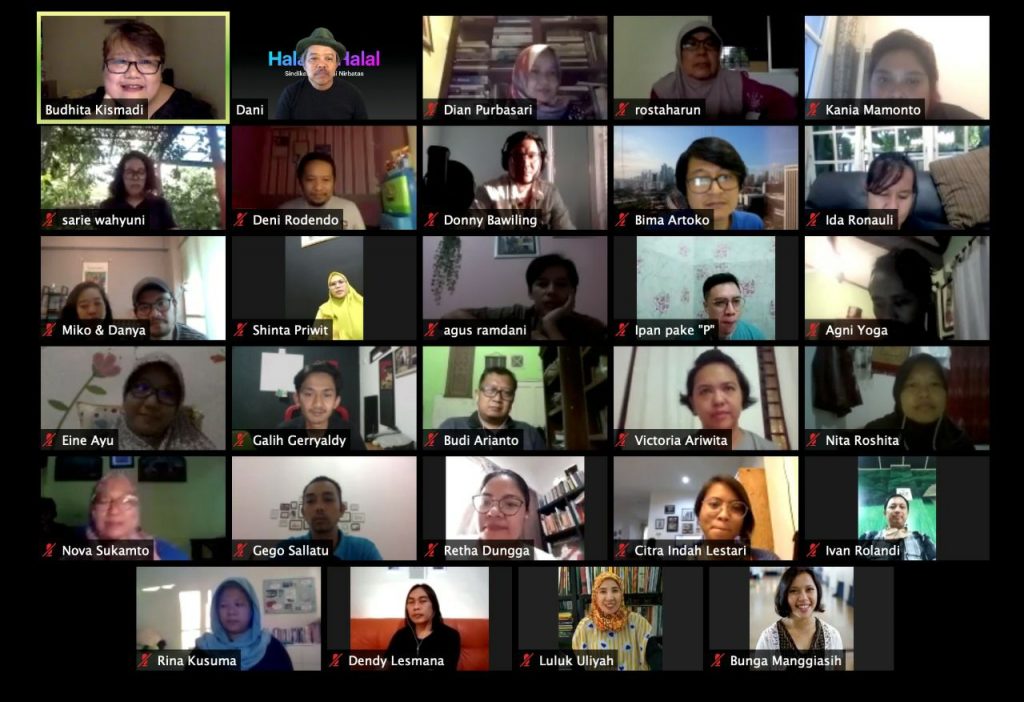
This Eid ain’t that bad.
I know I’m not the only (privileged) introvert person to think so. No need to rush to visit relatives’ houses, do the repetitive small talks (which almost always features the dreaded ‘when’ questions: when will you graduate/get a job/marry/be pregnant/deliver a baby/have second child etc), spend money for trains/flights, pack and unpack for the travel, and distribute ang paos to nieces and nephews.
What I miss from the usual Eid are only my parents and the Eid prayer. If I could have those two, after the pandemic it would be great to have this kind of more intimate Eid once in a while.
Granted, if more people thought alike, perhaps this would hurt the economy. But it will not only reduce expenses and bond us better with our most loved ones, I believe it will also significantly lower our carbon emission, which hopefully will be more beneficial in the long run.
I hear you, Mother Earth. This might not be my last different kind of Eid.
PS. I started writing this entry on May 24th, then finished it tonight.

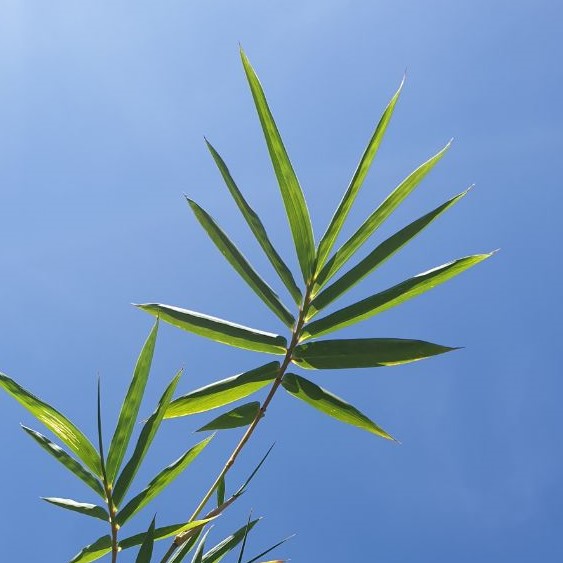
Rizal
Certainly, we are privileged to have our Eid at home, not in the hospital, or in the street. We missed you too, love! 😘
bunga
We will meet soon! <3